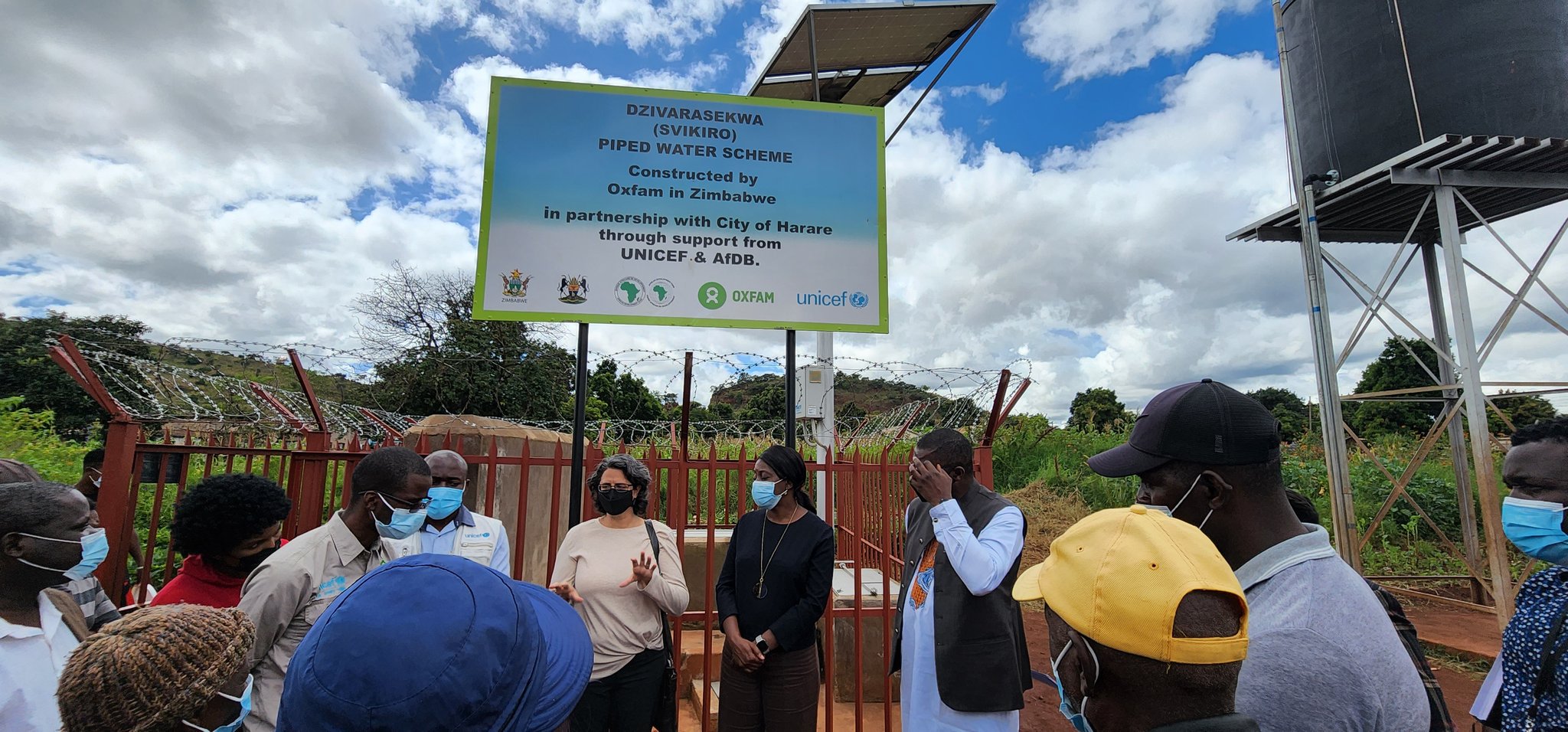
UNICEF Zimbabwe has released its 2021 Annual Report that outlines the situation for women and children in Zimbabwe with an overview of results and achievements in the areas of Health, HIV/AIDS, Nutrition, Water, Sanitation and Hygiene, Education, Child Protection, and Social Policy.
2021 was another year dominated by COVID-19 globally – characterized in Zimbabwe by the second, third and fourth waves of infections, lockdowns, and the introduction of the COVID-19 vaccine.
UNICEF implemented large scale programmes in close collaboration with the Government of Zimbabwe, WHO and partners to respond to COVID-19, including by promoting behavioral changes to avoid the spread of the virus, providing medical supplies to treat affected people, distributing protective material and encouraging people to get vaccinated.
.@MoHCCZim w/ @UNICEFZIMBABWE w/ support from @NutritionIntl & #HDFZim🇮🇪🇸🇪🇪🇺🇬🇧are supporting Nutrition & health activities w/ a focus on emergency response & the accelerated community level Vitamin A supplementation. In Nyanga, Rita Tinarwo says: "Vitamin A matters for my child." pic.twitter.com/MZ8DBNknLq
— UNICEF ZIMBABWE (@UNICEFZIMBABWE) April 14, 2022
Today is #WorldCreativityandInnovationDay @MoPSEZim through @UNICEF w/ support from @microsoft have transformed education in Zimbabwe through digital public goods like the #Learningpassport, a digital library of teaching and learning resources from the national curriculum. 👇🏾 pic.twitter.com/OsYwMgAyu1
— UNICEF ZIMBABWE (@UNICEFZIMBABWE) April 21, 2022
- Chamisa under fire over US$120K donation
- Mavhunga puts DeMbare into Chibuku quarterfinals
- Pension funds bet on Cabora Bassa oilfields
- Councils defy govt fire tender directive
Keep Reading
Working with the Government, donors, development partners, Civil Society Organizations, other UN Agencies and guided by the United Nations Sustainable Development Cooperation Framework (UNSDCF) in support of Zimbabwe’s National Development Strategy 1, UNICEF rolled out in 2021 large scale programmes benefiting the most vulnerable women and children in the country. In 2021 UNICEF and partners:
- provided treatment to 81% of the adolescents affected by HIV/Aids
- reached almost 400,000 children with emergency nutrition interventions
- supported basic water supply services to more than 1,2 million people
- provided learning opportunities to 150,000 children with disabilities and out-of school children
- ensured child protection services to 98,000 children in need of special assistance
In 2021 donors, development partners and UN joint programmes have contributed over US$135 million to UNICEF programmes, including through the multi-donor the Development Funds, to respond to the needs of women and children in Zimbabwe.
.@UNICEFZimbabwe Rep @TajudeenOyewale and @AfDB_Group Country Manager, @moono_mupotola toured water piped schemes in Dzivaresekwa. One of the water points,Svikiro, is one of the 61 boreholes upgraded from bush pumps under the AfDB-funded #COVID19 Response Project. @OxfaminZim pic.twitter.com/VWFwBU4DfI
— UNICEF ZIMBABWE (@UNICEFZIMBABWE) April 22, 2022
Together with the Government, UNICEF developed innovative approaches in 2021, especially in response to the challenges imposed by the COVID-19 pandemic.
The Government and UNICEF launched the Zimbabwe Learning Passport increasing access for an additional 80,000 users to digital learning and creating 3,700 local content learning materials. Responding to the most urgent needs of women and children affected by Cyclone Idai, cholera, typhoid, and COVID-19, UNICEF mobilized US$11.79 million of humanitarian funding benefitting to 1.9 million children.







